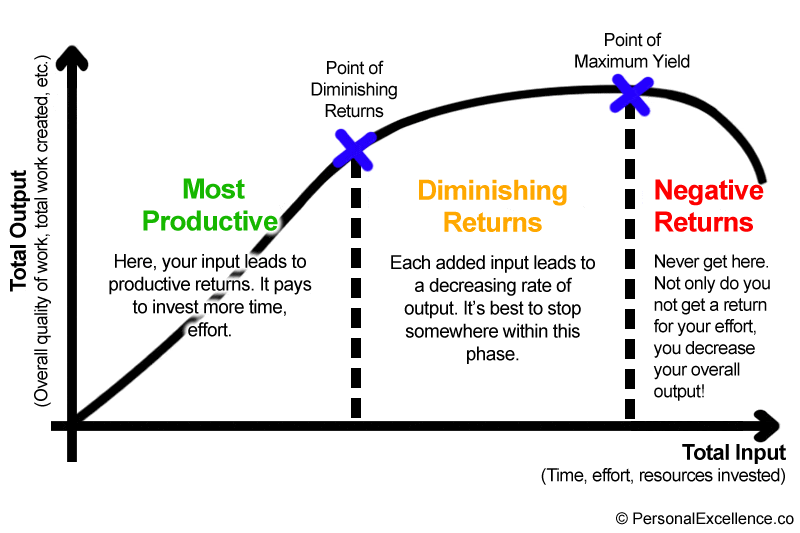
Content Crafters is an interview series where we de-construct the tools, tips, and tactics that top bloggers use to get so much work done. you’ll walk away in mere minutes with actionable takeaways you can try out right away. Let’s dive in!
Emma Brudner is currently the Director of Marketing, Blog and Community at HubSpot, a publicly traded marketing technology company that makes marketing, sales, and support software.
The HubSpot content team is a powerhouse. According to a recent interview with Emma, they’re putting up over 5 million visits a month and experiencing roughly a 35% year over year growth.
She’s a master of process, scale, and quality content output, as is evidenced by her work and results at HubSpot (where the blog still drives the majority of the leads for the company).
Before running the whole blog team, Emma was the first writer dedicated to the HubSpot Sales blog, where she grew traffic over 500% before hiring other writers to work on the blog.
She’s passionate about management, marketing, and cats.
You can follow her on Twitter at @emmajs24 or on LinkedIn here.

I was an English major in college and always knew I wanted to write professionally.
At first, I thought I wanted to be a journalist, but over time I realized that the results of writing (for example, traffic, shares, etc.) were more exciting to me than the process of writing. That’s what pushed me in the direction of content marketing.
Without quality, you don’t have anything. Quality always has to come first in any content strategy.
However, there’s a threshold of quality after which investing more time results in diminishing returns. For this reason, once writers are turning in consistently high-quality work, we start to work on speed, and recognizing when the right time to “just ship” a post is.
We also talk a lot about the results of our work — is your time better spent making this post absolutely “perfect” (and I would argue there’s no such thing when it comes to creative products) or starting work on another one that can capture totally new search traffic?
We don’t tend to accept many guest pitches primarily for this reason. It’s generally faster to us to write something from scratch internally than outsource it and go back and forth with edits.
Another reason we don’t accept much guest content is because of the sheer amount of ground we’ve covered in 12 years of blogging — it’s a challenge for external folks to find a “gap” topic that they can fill.
Empathy.
Google ranks content based on what best matches the searcher’s intent.
With that in mind, the best content writers are ones who can put themselves in a searcher or reader’s shoes and write the content they need to read vs. what the writer might want to write.
Adaptability.
Things are constantly changing in marketing, and you can’t hold any editorial strategy sacred if you want to be successful. Just because something was a good idea three months ago doesn’t mean it’s a good idea today — and that’s okay.
Anyone managing a content program needs to be paying attention to shifts in content discoverability and consumption, and be willing to reexamine their best practices accordingly.
Again, it goes back to empathy and looking at the topic from the reader’s point of view.
If I can write the piece that’s going to be most helpful to the reader, then my piece will perform.
Some questions I ask myself when I’m outlining a piece:
This isn’t weird, but I do take exercise pretty seriously.
When I don’t go to the gym for a few days, I can really see the negative impact on my performance at work. In a similar vein, I almost never stay up past my (early) bedtime for work.
I really believe that taking time for physical well being and not working crazy hours weirdly makes me more productive and effective.
Hi! It’s your editor again. This section is for those who want to dive deeper on individual points. I’ll expand here on some of the answers above and give you more details on any tools, processes, or resources that were mentioned in the interview.
Emma talks about content quality being table stakes, but she also says there is a point of diminishing returns, when you just need to ship a post.

That’s true, and it’s true of almost any creative endeavor.
As Leonardo da Vinci (probably) said, “art is never finished, only abandoned.”
However, this is especially the case when you have the assets that HubSpot has. Essentially, a huge site with lots of authoritative blog posts and domain authority makes it easier to rank for new posts in the future. If you’re starting a new blog, you may well need to rely on 10x quality to even stand out.
A great blog post on this topic is by Atrium, where the author talks about how SEO differs from seed stage startups to scaled out operations. At every level, there’s a point of diminishing returns, and that point occurs even faster if you’re a super authoritative site.
This is a common theme among writers we’ve interviewed. For example, here’s what Sophia Bernazzani (also from HubSpot), said about her approach to writing:
“I want to figure out how to offer the best answer to the searcher’s question, and writing is the means to achieving that end. Sometimes the biggest challenge of content marketing isn’t writing about a topic how you want to write about it, but writing about it in the way that’s most helpful or educational for your targeted reader, because those two preferences aren’t always in agreement.”
Kaleigh Moore also explained that she sources most of her article ideas directly from reader struggles and questions:
“Almost always they are inspired by questions I get from subscribers. I also do surveys throughout the year to better understand what my audience wants to learn from me.”
It does seem that empathy is a prerequisite of good writing.
Other than the psychological ability to feel what your readers feel, how can you tap into their minds to write better content?
As Emma noted, you can “read books, interview people, go to events. Anywhere they are, you should be too.”
You can also dig into insights that already probably exist within your company.
A good place to start? Talk to people who work in customer facing roles like sales or support. Figure out what questions come up frequently. Find ways to answer those questions through content.
Another place? User experience research. You can throw a Qualaroo poll up on your blog pretty easily to gather feedback directly from site visitors. You can get tons of ideas on how to improve your content there.
I saved 3 hours uploading this article from Google Docs to WordPress using Wordable.